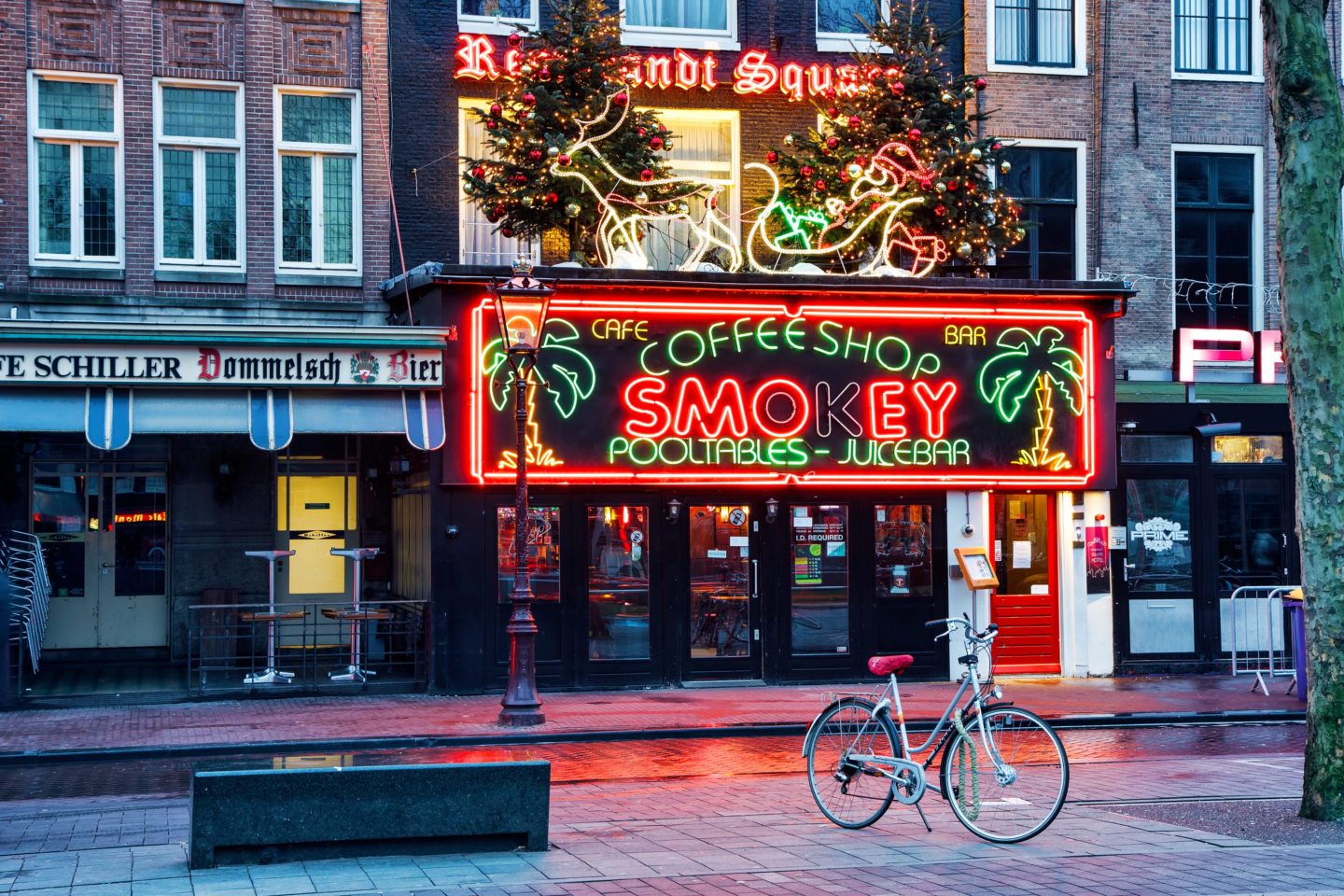
Amsterdam mayor threatens to ban tourists from coffee shops |
Meghan Markle might want to trademark the word “archetype” for her own gain, but it just goes to show how universal some fights actually are. Not to mention how unoriginal the constant threats are to one of Amsterdam’s most enduring, if not lovable, symbols.
The latest salvo against the city’s coffee shops comes (once again) from the city’s mayor, Femke Halsema, who has just unveiled her latest plan to ban tourists from the city’s cannabis cafes, using a well-worn excuse. Namely, to “get a grip” on the local market for soft drugs and the outdated ramblings that cannabis is a gateway drug to other, harder drugs.
It’s a broken record – but unfortunately one she insists on to the bitter end.
Here’s her rationale: According to some city officials, at least, ‘only’ 66 of the 166 currently licensed stores are ‘needed’ to meet local demand – meaning she really wants to close 100 (or about 2/3rds) of them. Additionally, according to Halsema, banning cannatourists in Amsterdam is the “best way” to manage the country’s pending cannabis cultivation trial (which, of course, excludes coffeeshops in Amsterdam and other major Dutch cities) – rather than trying to integrate them into – which is also inevitable.
The move is hardly surprising, however. Amsterdam officials have long tried to shut down the Cannatrade, against evidence that this unique aspect of Dutch culture has not only become an enduring international symbol of the cannabis industry and reform, but is being copied everywhere prohibition is finally receding. Apparently, these officials don’t think the attraction that draws about 58% of tourists to the city is one they want to continue to associate with Amsterdam. Around 3 million tourists visit the city every year to take part in this unique experience.
Of course, both the industry and the evidence say otherwise. Street trading has actually picked up again in smaller towns in Holland, where coffeeshops are restricted to residents.
In addition, the two largest parties represented in the city council, D66 and Groenlinks, are opposed to the initiative, which was announced after the local elections in March.
Regardless, Halsema doesn’t have to rely on majority support when she calls the situation a “necessity.” She has also been on this particular train for at least two years.
So much for democracy, not to mention governing for and with the will of the people.
Amsterdam ban rears its head as progress threatens status quo
This isn’t the first attempt to restrict the coffee shop trade or even ban tourists from it, let alone by Halsema, who has been trying to achieve this goal in recent years. She’s also used various excuses that sound more or less the same – including using the COVID pandemic to temporarily close all stores – although she’s also been forced to allow out-of-home service as the lockdown has eased in recent years lasted.
Part of the problem, no matter how popular such destinations are with foreign visitors – particularly Brits and Germans – is that tourism accounts for only about 10% of the city’s overall economy. According to Halsema, “Amsterdam is in a fortunate position where it could really use the pandemic to try some new things.”
Incorporating the city’s coffeeshops into the national cultivation trial doesn’t appear to be one of those ideas. In fact, it’s just being used as another excuse to shut down said establishments.
Why now?
As much as these efforts are clearly focused on public relations, they are yet another sign of how deaf, if not adamant, to cannabis, elected officials can be to industry advances, if not willfully ignorant of the drug, and the impact of its use.
There is no evidence that cannabis use leads to harder drugs. In fact, there’s a growing body of data proving it’s actually a torment by them — starting with opioids.
Furthermore, of course, in any jurisdiction that has continued at least a semi-legitimate cannabis trade, it’s clear that banning parts of it doesn’t stop demand — rather, it drives it further into the black market.
However, such regressive statements, attitudes and outdated campaigns will remain in Europe for some time as several countries now wrestle with how to integrate cannabis into the mainstream. Look next door in Germany, where the new national government, campaigning on recreational cannabis reform, has clearly sidelined such a move in the face of more compelling priorities.
Whether the mayor and the “dark side” will win this salvo is of course still open. No matter what Halsema and others like him want or even want to push through, it is unlikely that tourists will effectively ban such establishments – starting with the fact that Barcelona has also proven impossible to do so.
Halsema is also unlikely to win in the long term. Some coffee shops may close. However, those who survive, just like those who survived the previous purges, will only emerge stronger and more popular than before.
And that’s an archetype that even Jung would approve of.

Post a comment: